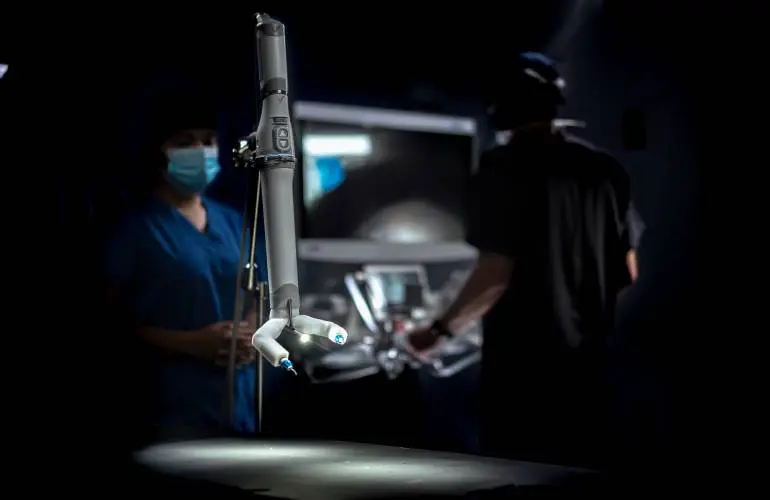
Banno receives applications from Iowa expats that left 15 years ago, the company’s CEO Wade Arnold said.
 To emerge victorious in the next tech talent war, Iowa companies must create a culture that cultivates and nurtures passionate programmers.
To emerge victorious in the next tech talent war, Iowa companies must create a culture that cultivates and nurtures passionate programmers.
That’s what Banno CEO Wade Arnold said Wednesday afternoon in a Business Innovation Zone Luncheon presentation.
“What I strongly believe is if you have people lined up with the passion, their 100 percent is much better than a rock star’s 80 percent,” said the 34-year-old founder of the Cedar Falls-based startup.
The luncheon, sponsored by the Greater Des Moines Partnership, drew a crowd of about 40 people from the Des Moines business community. Arnold spoke for an hour about how to create a successful tech company in Iowa.
“There’s all this crazy talent in Iowa … but a lot of those people left because there wasn’t a good cultural fit,” Arnold said of the early tech industry in Iowa.
“Now we’re getting applications from people who left 15 years ago,” Arnold said. “There’s no shortage of amazing talent that comes out of this state. There’s maybe just a shortage of ‘Iowa Nice’ where we don’t tell about what we’re doing to keep those people here.” But Iowa expat programmers are coming back to the state—some to raise families, others simply because the cultural landscape has improved.

So how can Iowa companies keep talent in the state? Arnold credits Banno’s success to articulating a clear business vision and developing a software culture. The problems that drive tech talent away are often cultural and structural. Arnold said companies can’t separate their business and technology visions, and must avoid the attitude of “Give programmer donut, get code back.”
“If you think of programming and IT as the same thing, good luck hiring programmers.”
Business leaders need to involve programmers in the value of their work. It’s important for technologists to view their profession as engineering intellectual property and to see opportunities for growth.
“Nobody wants to build crud apps. That’s why they’re called crud,” Arnold said.
Banno is having no problem attracting and retaining new talent. They recently hired 31 computer science interns, some from as far away as Boston. Arnold said that’s because the company treats programmers like “first-class citizens.” Of the interns Banno offers jobs too, Arnold said they have a 100-percent retention rate.
Arnold also mentioned John Deere as a company that’s leading tech development in Iowa by presenting programmers with hard problems and a long-term vision. In their case, the company is developing equipment that operates autonomously, a “hard problem” that passionate software engineers are eager to tackle.
“I’d say we’re picking off hard problems, and that attracts a certain amount of certain technologists,” Arnold said. “They want to refine their skill sets over that vision and solve that hard problem.”
Credits: Photos by Frank Merchlewtiz



